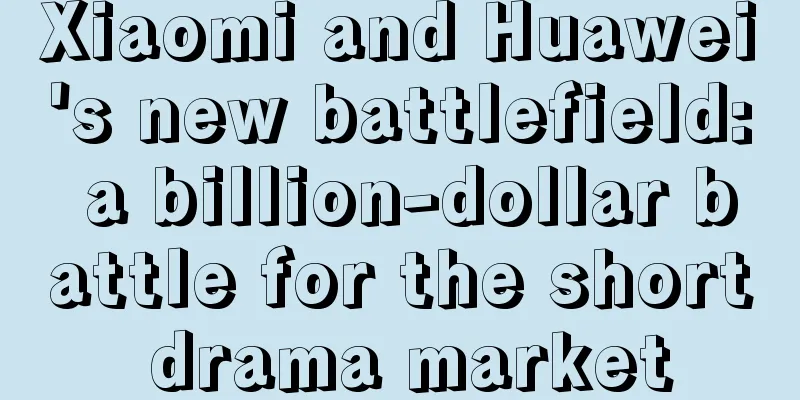Migu, Douyin, and Tencent's Olympic traffic war

The essence of sports is war in peacetime, a contest of comprehensive strength between countries, a competition among global brands to attract attention, and a division of the entire traffic pie among various Internet platforms. Starting from the Tokyo Olympics in 2021, the Beijing Winter Olympics, the Qatar World Cup in 2022, and the Hangzhou Asian Games in 2023, the sports marketing education for physical brands and virtual platforms in the domestic market has been seamlessly completed, and it has also brought a shock to sports traffic. Official data from China Media Group shows that after the opening of the 2021 Tokyo Olympics, CCTV5, as the main broadcasting channel for the Olympics, has seen its audience share rise steadily, up 20% from the average during the same period of the 2016 Rio Olympics. The short video platform Kuaishou also seized the opportunity that year and obtained the copyright of video on demand and short video content, which was one step faster than Douyin's secondary content. As early as three months ago, when the 100-day countdown to the 2024 Paris Olympics was approaching, brands and platforms had already started to build momentum. Related terms on social media such as Weibo and Xiaohongshu were on the hot list, and Chery and Yili also fired the first shot of Olympic marketing by signing athletes and sponsoring delegations. The copyright dispute among content platforms broke out in the middle of last month, and the distributor of the Olympic broadcasting rights of China Media Group was finally announced. Migu Video, Douyin and Kuaishou became the rights-holding broadcasters of long and short video platforms respectively. Subsequently, Tencent separately announced that it had reached a cooperation intention with CCTV, and that it would be able to watch on-demand, short video content, and self-produced programs through its Tencent Video, Tencent Sports, WeChat, Tencent News, Tencent.com, QQ, QQ Browser, Weishi and other channels. As a long video platform under China Mobile, Migu's distribution copyright level is as high as ever, including real-time broadcast, delayed broadcast, playback on demand, etc. In other words, just like during the Tokyo Olympics, the only legal channels for watching live broadcasts on mobile network platforms are CCTV's CCTV Video APP and Migu Video APP. The highest level of distribution rights means high licensing fees. The nearly monopolistic live broadcast channel can indeed bring exclusive traffic to the entire network during the event, and even generate secondary dissemination on other platforms and communities, and then flow back to the Migu platform. However, given that Migu has been building its image as a professional sports event video platform for many years, true sports enthusiasts have already known its name. Most of the users who are attracted by the national sentiments during the Olympics or by athlete fans will also quickly leave after the Olympics. Judging from the wording of the official announcement, the distribution copyright levels purchased by Douyin, Kuaishou and Tencent are the same, all of which are on-demand events and short video content, as well as self-made related programs. Tencent reached a cooperation intention in the form of group business packaging, obviously leaving the short video content to the video account in WeChat, and placing the self-produced programs on Tencent Video, a long video platform with content production capabilities. Kuaishou was in the spotlight during the Tokyo Olympics, with the total number of views of related works and topic videos reaching 73 billion, and also driving the overall number of consumers in the platform's e-commerce business to grow by 63.2% year-on-year, and GMV to grow by 88% year-on-year. The sweetness of sports traffic naturally attracted Douyin, which obviously has more monthly active users than Kuaishou. Compared with the last Olympics, when Douyin could only follow B Station and copy others' editing and creation, it will certainly try to take back what it missed before at all costs. Paying real money to obtain copyright is just the beginning. How to utilize copyright and the characteristics of their own platforms to sell more and more expensive sponsorship rights is only the first step for these content platforms to hedge against high copyright fees. On the other hand, they must also be vigilant about community platforms such as Weibo, Bilibili, Xiaohongshu, Zhihu, etc. that do not have copyrights and use their strong topic atmosphere to share the fruit on the Olympic cake. The smoke of this traffic war has not yet risen, but the smell of gunpowder is already strong. Since the 2008 Beijing Olympics, the failure of Olympic economics has become increasingly apparent, and it may even become a physical burden for the host country. It was also from the heyday of the four major portals, Tencent, NetEase, Sohu, and Sina, that the online economic benefits of the Olympics continued to shock. An AC Nielsen survey that year found that the four major portals accounted for 80% of the Internet traffic covering the Beijing Olympics. Their advertising revenues in the second quarter of that year all hit record highs, and their total revenue in the third quarter exceeded US$100 million for the first time. Now, after the baptism of London, Rio de Janeiro and Tokyo, the Paris Olympics bid farewell to the glory of the long video era and embraced the short video. For Douyin, Kuaishou, and Video Account, which have just taken the center stage, what they need to calculate is not simply the addition and subtraction of buying copyrights and attracting sponsorships. They also need to focus on the entry of star athletes under the long-tail effect, the GMV conversion of brands, and the battle for user minds with content tone. Author: Fu Shen; Editor: Sai Ke Source: Science and Technology News (ID: 826794) |
<<: The popular dramas you can’t watch, the VIP memberships you can’t buy
>>: Changing marketing scenarios, unchanged communication models (Part 1)
Recommend
What is the difference between Amazon on-site promotion and off-site promotion?
E-commerce cannot be separated from promotion, and...
How do I register a seller account on Wish? What are the requirements for seller registration?
To open a store on Wish, you need to register a se...
Do short video platforms need to be “anti-addiction”?
While adults are chatting, children are watching s...
Price reduction! Free! Enclosure! The price war of large models is in full swing
This article mainly describes a series of price re...
Are products sold by Amazon genuine? Why are products sold by Amazon cheaper?
Many people should have had the experience of buyi...
The "counterattack" of cats and dogs, can these cute pets that have gone viral make money?
The cute pet track is still hot on video platforms...
Top anchors turn to short dramas to create the myth of selling goods again?
Hansu achieved sales growth through short drama ma...
What is the difference between Amazon and Lazada?
Although most of the friends shop on domestic e-co...
What happens if Amazon keywords are repeated? How to get them on the first page?
Keywords are very important for Amazon products. C...
How to collect payments when running a local store on Shopee? How does the Shopee platform transfer payments?
There are two types of stores on the Shopee platfo...
Which one is better, Lazada or Shopee? What is the difference?
Lazada and Shopee are two different cross-border e...
Zhang Yiming no longer competes with Huang Zheng for the title of King of White Cards
As competition among e-commerce platforms intensif...
How to improve the store ranking of Wish? How to improve the ranking of Wish
Wish is an emerging mobile e-commerce company. The...
MINISO, addicted to collaborations, has turned itself into a "toy store"
As the retail industry continues to change, MINISO...
What should I do if the submission of eBay cross-border authentication materials fails? How can individual sellers obtain cross-border authentication?
In the wave of globalized e-commerce, eBay, as an ...









